21st Orphan Drugs and Rare Diseases Global Congress 2024 Europe
Innovative programmes to optimize access in a global healthcare market
Day 2 - Friday 12th April 2024
- Auditorium 1
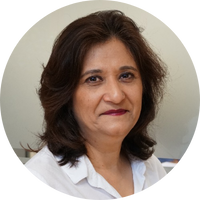 Sheela Upadhyaya – Life Sciences Consultant – specialising in Rare Disease
Sheela Upadhyaya – Life Sciences Consultant – specialising in Rare Disease
ACCESS & COLLABORATION
- How are public private partnerships advancing?
- How could they add value? the power of PPP
- How the futures PPP looks like? What is really exciting?
- Conclusion, look to the future
 Anne-Sophie Chalandon, Head of Global Public Affairs, Rare Diseases & CGT Policy, Specialty Care,
Anne-Sophie Chalandon, Head of Global Public Affairs, Rare Diseases & CGT Policy, Specialty Care,
Sanofi
 Sheela Upadhyaya – Life Sciences Consultant – specialising in Rare Disease
Sheela Upadhyaya – Life Sciences Consultant – specialising in Rare Disease
- The difference between real world data and real world evidence
- The utility of RWE within a drug development pathway
- RWE frameworks across the world
- Use of RWE in HTA
 Sheela Upadhyaya – Life Sciences Consultant – specialising in Rare Disease
Sheela Upadhyaya – Life Sciences Consultant – specialising in Rare Disease
- This session reports on the collective vision and efforts of global patient leaders towards
empowering and enabling the patient movement to ‘level’ and ‘leverage’ up towards delivering its
full potential for the benefit of patients, health systems, and society
 Amanda Bok, Chief Strategy Officer, The Synergist
Amanda Bok, Chief Strategy Officer, The Synergist
- Role of RWD/E in orphan disease drug development
- Pitfalls in the use of RWD/E in orphan drug development
- Repurposing and RWD/E
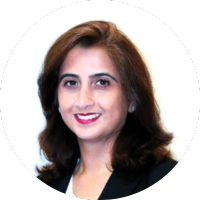 Surabhi Verma, Chief Medical Officer, Leadiant Biosciences
Surabhi Verma, Chief Medical Officer, Leadiant Biosciences
- Establishing Trust and partnership
- Using 3rd party agencies as a networking, capacity and bridge building partners
- Building joint successful advocacy campaigns
- Exploring ethical issues and barriers in joint working
- What does best practice look like now and in the future.
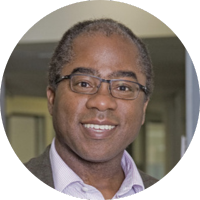 Nigel Nicholls, General Manager UK/Nordics & Baltics, Egetis Therapeutics AB
Nigel Nicholls, General Manager UK/Nordics & Baltics, Egetis Therapeutics AB
- Introduction of a novel methodology to tilt the cost-benefit function of rare disease treatment development
- Leveraging both human and machine intelligence to identify treatment opportunities and build collaborative teams around relevant assets
- Case study and preliminary outcomes from our Rare Neurology cohorts will be presented
 Dr. Ron Jortner, Founder/CEO, Aspire Biosciences
Dr. Ron Jortner, Founder/CEO, Aspire Biosciences
- Today’s Rare Disease Landscape
- Challenges & Opportunities
- The importance of patient networks and incorporating diverse patient voice in diagnosis and clinical trial recruitment
- Patients before Profits – How to improve the clinical trial experience for patients and retention for sponsors
- The Importance of Early Access
- Understanding end points and emerging science
- Collaboration, Collaboration, Collaboration !!!
 Bob Stevens, Group CEO, MPS Society
Bob Stevens, Group CEO, MPS Society
- Why is patient advocacy beneficial to research?
- Understanding of elements contributing to meaningful ways of involving patients in research
- Advantages of involving patients early in research
- What else needs to be done?
 Carole Scrafton, Director & Co-Founder, Flutters and Strutters
Carole Scrafton, Director & Co-Founder, Flutters and Strutters
- In rare disease, patients look ‘upstream’ with hope for development of new treatments and access to trials and ’downstream’ for better, faster diagnoses and access to treatments. No other disease category faces the same sorts of challenges all along the continuum. Recent market conditions have halted development of a number of promising potential therapies, and new policies, coverage decisions, financial pressures and other factors have generated additional gaps, delays and difficulties in access to newly approved medicines.
- New approaches that are emerging from discovery to treatment in response to these challenges.
Moderator:
 Dr. Ron Jortner, Founder/CEO, Aspire Biosciences
Dr. Ron Jortner, Founder/CEO, Aspire Biosciences
Panelist:
 Julie Powell, Director, Patient Advocacy and Public Affairs, Pleco Therapeutics
Julie Powell, Director, Patient Advocacy and Public Affairs, Pleco Therapeutics
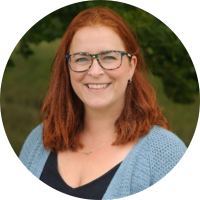 Lindsay Randall, Founder, CEO, Mother, Arthur’s Quest
Lindsay Randall, Founder, CEO, Mother, Arthur’s Quest
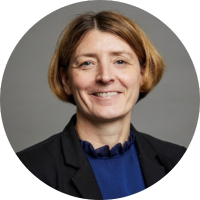 Hazel Dawson, Market Access Director, UK & Ireland, Alexion Pharma
Hazel Dawson, Market Access Director, UK & Ireland, Alexion Pharma
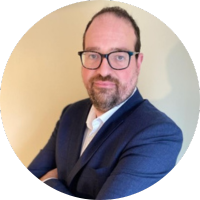 Robert Donnell, EVP, Medicines Access, Smartway Pharma
Robert Donnell, EVP, Medicines Access, Smartway Pharma
- Breaking down barriers for access
- Strengthening health systems around the world and accelerating pathways to diagnosis
- Stakeholders to address the rare diseases’ ecosystem gaps to collaboratively build a sustainable roadmap for better health and a brighter future for the patients suffering from rare diseases.
- Challenges and opportunities in creating sustainable healthcare for all.
Moderator:
 Dr. Femida Gwadry-Sridhar, Founder and CEO, Pulse infoframe Inc.
Dr. Femida Gwadry-Sridhar, Founder and CEO, Pulse infoframe Inc.
Panelists: Anthony Hall, Chief Medical Officer, Healx
Anthony Hall, Chief Medical Officer, Healx
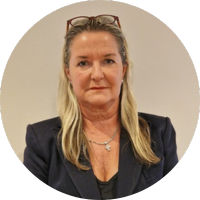 Juliet Hulse, Head of Clinical Operations, Pulse infoframe Inc.
Juliet Hulse, Head of Clinical Operations, Pulse infoframe Inc.
 Surabhi Verma, Chief Medical Officer, Leadiant Biosciences
Surabhi Verma, Chief Medical Officer, Leadiant Biosciences
 Carole Scrafton, Director & Co-Founder, Flutters and Strutters
Carole Scrafton, Director & Co-Founder, Flutters and Strutters
 Dr. Ron Jortner, Founder/CEO, Aspire Biosciences
Dr. Ron Jortner, Founder/CEO, Aspire Biosciences
 Sheela Upadhyaya – Life Sciences Consultant – specialising in Rare Disease
Sheela Upadhyaya – Life Sciences Consultant – specialising in Rare Disease
